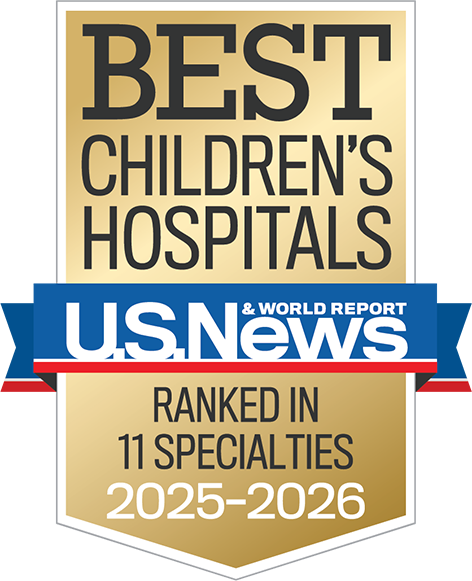Chemotherapy, radiation and surgery are vital treatments for many pediatric cancer patients. But these lifesaving measures can take a toll on young bodies. Some side effects of childhood cancer treatment may not show up for many years. These side effects are called late effects.
About the Childhood Cancer Survivorship Program
The Childhood Cancer Survivorship Program at Siteman Kids at St. Louis Children’s Hospital has decades of experience monitoring and treating late effects of cancer therapy. When we catch them early on, our team can prevent or successfully treat many late effects of cancer treatment.
According to the latest data from the National Institutes of Health, there are almost half a million survivors of childhood cancer. As more children survive cancer, we continue to learn more about the long-term side effects of cancer treatment.
Late effects can happen any time after your child’s treatment and throughout adulthood. We use screenings and data from our years of experience to predict what side effects your child might experience and when they might occur.
Our team includes some of the leading researchers in the field of late effects. We participate in many national research groups so we can bring the latest treatments and therapies to our patients.
Our Approach
From family education and regular checkups to a team of dedicated specialists, we treat all of your child’s physical and emotional needs. Our approach to late effects includes:
Education
We believe it’s important for families to understand the long-term impact treatment can have on children. We educate families — and children, if it’s appropriate — while kids are receiving cancer treatment.
Ongoing monitoring
Children transition to our Childhood Cancer Survivorship Program about two years after they complete their cancer treatment. We focus our education and monitoring on the areas where your child is most at risk. This helps us identify and quickly treat the late effects many cancer survivors experience. Prompt treatment helps reduce complications.
Comprehensive screenings
Many children need regular screenings depending on their risk level. Screenings for your child may include:
- Medical exams
- Psychological exams
- Neuropsychology exams
- Occupational therapy
- Physical therapy
- Audiology/speech therapy
- Visual exams
- Heart exams
- Lung exams
Collaborative care
Your child may see experts in cardiology, endocrinology, nephrology (kidneys) or other specialties. We have regular conferences to discuss each child’s care.
When we bring the team members together, it helps us consider all the aspects of a child’s health. For example, a child experiencing difficulty walking may need physical therapy. But it is also possible the child has a balance issue that needs the expertise of an audiologist, or the child may have an emotional concern that requires treatment.
Together, we can determine the best treatment for your child’s unique health needs. We treat the whole child, considering each aspect of a child’s life.
Find out more about what to expect at a visit to the Childhood Cancer Survivorship Program.
Contact the Childhood Cancer Survivorship Program
If you have concerns about the impact of late effects on your child, you can call us at 314.454.5437 or 800.678.5437. You can also email us.
Conditions We Treat
Related Programs & Services
We offer world-class care to children thanks in part to generous gifts from hundreds of people who have joined us in making health care better for all children. This philanthropic support enables us to fulfill our mission to do what's right for kids.











